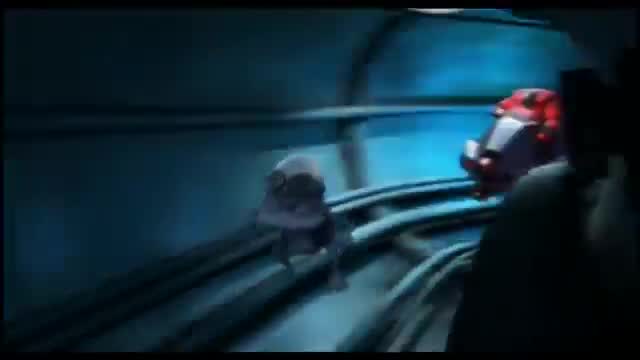

It illustrates how the line between advertising and entertainment is now at least invisible, if not completely non-existent.

It illustrates how contemporary taste moves increasingly to the eclectic, to the mixed up and heterogeneous as a corollary, it shows how technology has made the whole idea of distinct musical genres seem quaint and passé. With so many people responsible for the various forms of this product as it has morphed, the question of its authorship is intractable. First, it shows just how difficult the question of copyright has become in the cut-and-paste age of constant "remixing," i.e. What interests me more are the sociological shifts that this story illustrates. When did we come to accept that music was an industry anyway?
#CRAZY TOAD SONG HOW TO#
Soon all appliances will have similar memory banks, and people will figure out how to make them talk to each other, so that the definitions of television, stereo and cellphone will meld.) At any rate, I really don't care how they respond, never having had any sympathy for anything that calls itself a music industry. (My friend Shawn recently did just this, when he didn't have a CD handy to burn - he stored a two-hour DJ set on his digital camera's memory, to plug into his computer later.
#CRAZY TOAD SONG DOWNLOAD#
It will have to become responsive to a world in which anyone can make and distribute music almost entirely for free, and in which I can download several megabytes of music on to, I don't know, my camera. The tension this story causes in record company boardrooms can be best summed up by great punk impresario Malcolm McLaren, who was quoted as saying "Listen to this song and you can hear the death knell of the traditional music industry." His apocalyptic utterance is not necessarily gloomy all he's saying is that the music industry will have to become something else. Then the electronic DJ duo called Bass Bumpers made the arrangement of the engine sounds over the It has made more money than any other ringtone in history. The manic shrieking noise was marketed as a ringtone by a company called Jamba. It will make you laugh.) The recording was the soundtrack to a hilarious animated video of a mad frog, made by another Swede called Erik Wernquist, which is where the frog title comes from. (You can hear the entire original on-line at leech.dk/dengdeng.swf. (The piece, composed by Harold Faltermeyer, was calledĪxel F.) Overlaid on this tune is the notorious ringtone: a recording of a 17-year-old Swedish computer salesman doing a vocal imitation of a two-stroke motorcycle engine revving hysterically. This song is based on a tune most people over 30 will recognize - it's the cheery synthesizer theme music from the 1984 Eddie Murphy movieīeverly Hills Cop.

It's technically a "mash-up" - one of those textbook postmodernisms that overlays two pieces of music, usually of incongruous genres. Actually, the tune, for anyone who hasn't been hearing it all day every day (and I'm sure we will) is a blast. Much has been made, in the British press, of the fact that the ditty has outsold the new single by Coldplay by nearly four to one - as if that should surprise anyone. This is the first time a cellphone ringtone has crossed into the mainstream music charts. The Internet is awash with rage: Chat rooms are bristling with such all-caps entries as "DIE DIE DIE STAB DIE" when the topic of the Crazy Frog arises.Ĭrazy Frog Axel F song that has just reached No. This song, an extremely catchy, humorous novelty song, originated as a cellphone ring tone, and has been advertised so ubiquitously that apparently you can't sit next to a television in Germany or Britain for 15 minutes without hearing it three times. A tide of mass irritation has already swept across the suffering people of Europe, all focused on one annoying song.


 0 kommentar(er)
0 kommentar(er)
